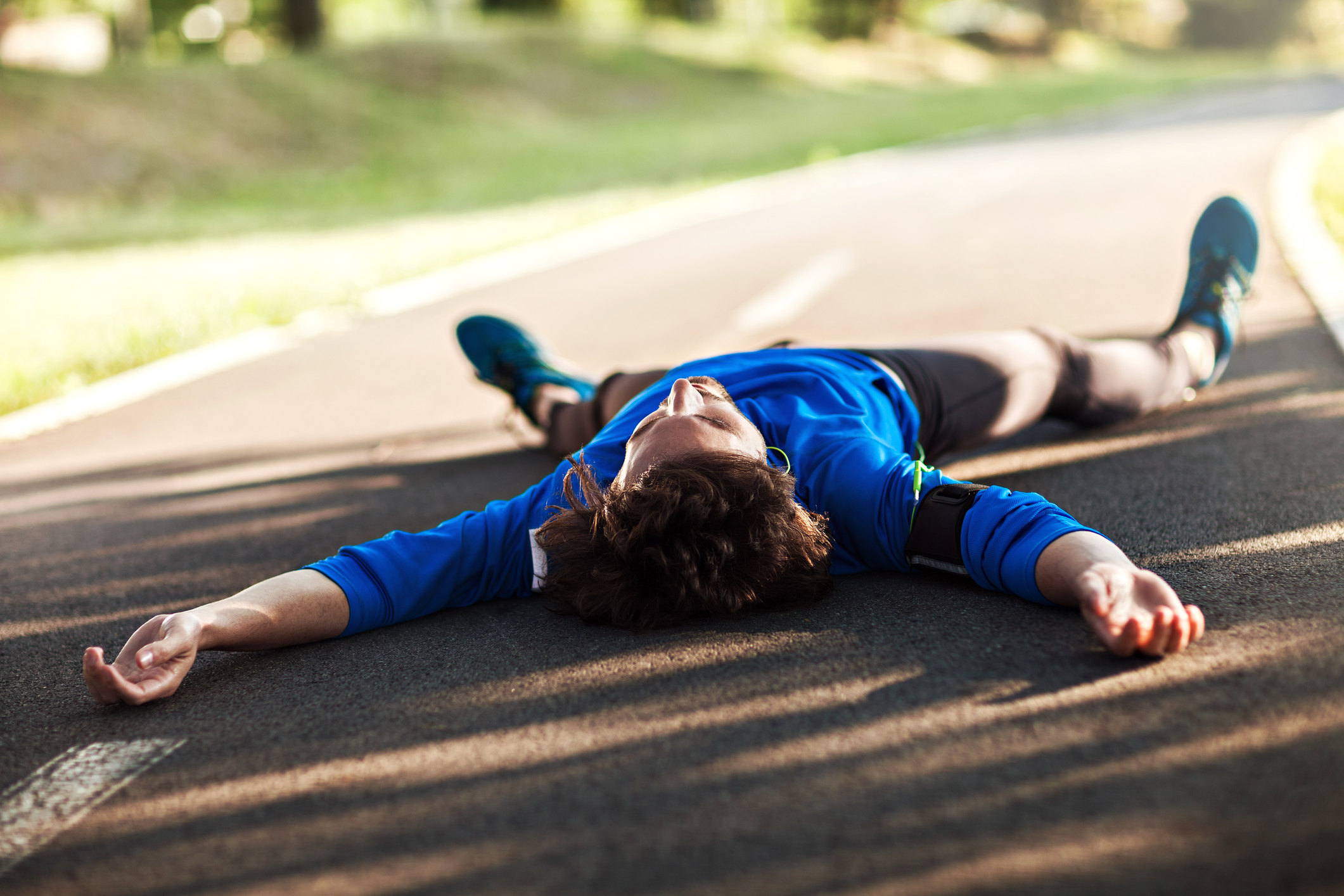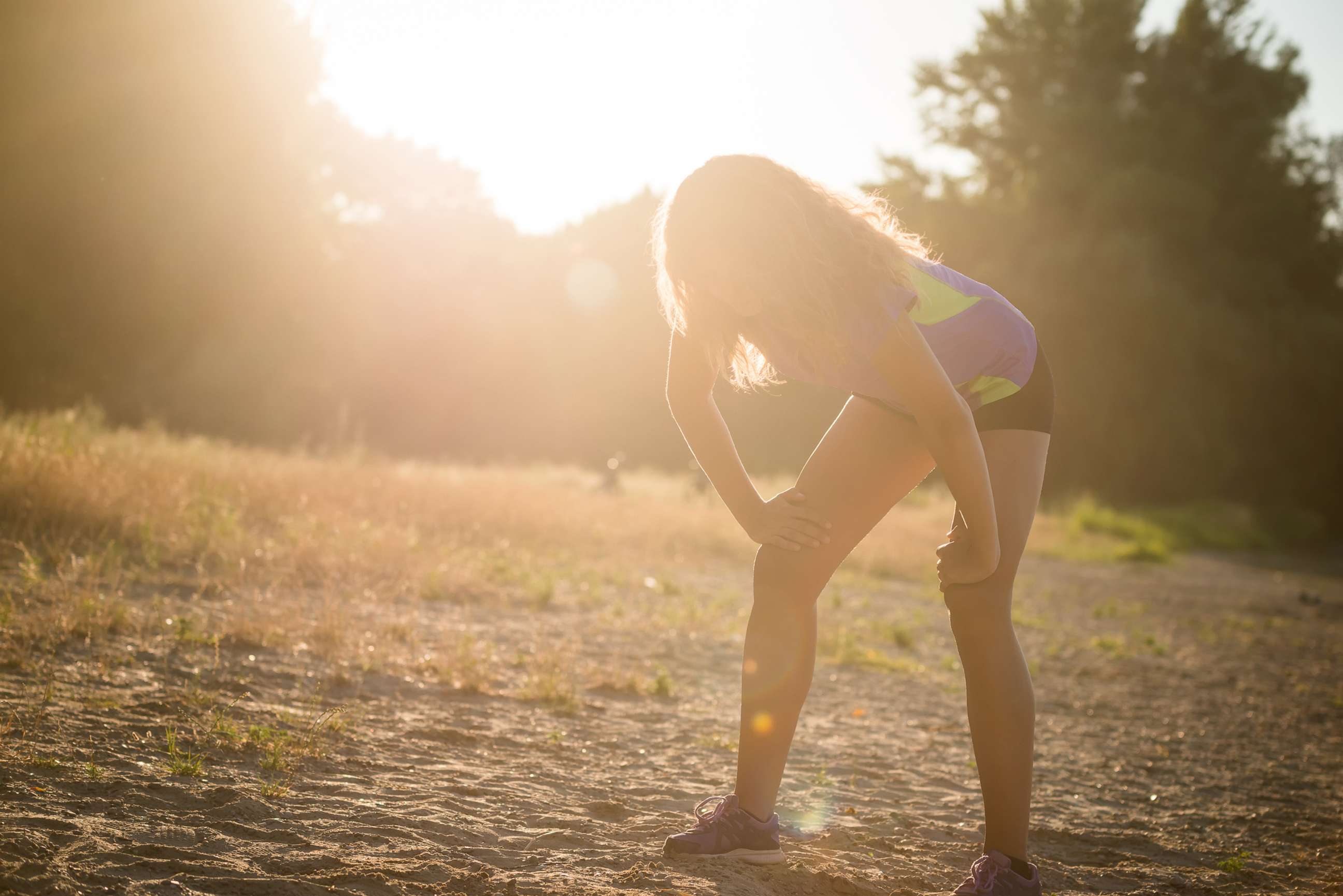Can working out too much kill you?
What you need to know.
The day after finally returning to the gym you may “feel like you’re dying.” Achy, burning muscles can be a sign that you are getting stronger. But taken to an extreme, that feeling may be your body telling you that you are in danger.
A Texas teen learned that the hard way recently after he was diagnosed with rhabdomyolysis, a potentially life-threatening condition, and hospitalized for treatment, according to ABC station KTRK.
Here's what you need to know:
What is rhabdomyolysis?
There is such a thing as working out “too much,” and it’s familiar to weightlifters, cyclists, swimmers or runners who take it to an extreme. It’s called rhabdomyolysis, or “rhabdo.” Muscle pains, soreness, cramping, stiffness, weakness and dark-colored urine are a few of the symptoms of this disease. When muscles work, different materials from your cells leak into your bloodstream. Your kidneys clear them out of your blood -- too many, and they clog up your kidneys. If your kidneys fail as a result, it can ultimately lead to death.

How does a doctor detect rhabdomyolysis?
Blood and urine tests can measure the muscle breakdown products that alert a doctor to consider the diagnosis, especially if someone says they’ve just completed a rigorous workout.
What is the treatment?
Fluids. While treatment depends on how extreme the disease is (it may involve being hospitalized), one of the most important aspects is hydration. The body needs to flush the materials from the muscle cells out, and rhabdomyolysis can change the salt-to-water ratios in your body. In severe cases, you may need to be connected to a dialysis machine to help your kidneys work.

Can I avoid rhabdomyolysis?
Avoid it the same way you treat it -- fluids, fluids, fluids. Staying well hydrated allows your body to flush out the byproducts of working muscles. When you feel sore, especially if you are trying to jump into a workout routine, start something new at the gym or increase the intensity of your workouts, it is important to slow down. If your body is sore throughout the day, you are unable to loosen your stiffness, you notice the color of your urine is darker, you feel nauseous, you have stomach pain, dizziness or fatigue, start drinking water and see a doctor.
I like to work out, what does this mean for me?
This does not mean you should stop working out. Exercise is one of the best things for your overall health. Doctors encourage everything in moderation -- if you listen to your body, and slow down when it is asking you to do so, and if you stay well hydrated before, during, and after a workout, you should be OK. If you feel like something is off, ask your doctor.
Eric M. Ascher, DO, is a third-year family medicine resident from New York working in the ABC News Medical Unit.



